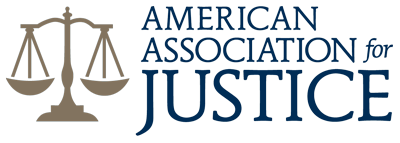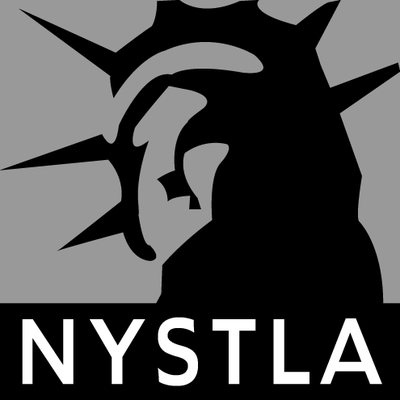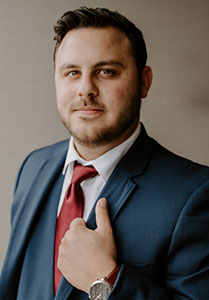Brain injuries can have a profound impact on the lives of victims and their families, often resulting in long-term physical, emotional, and financial challenges. In New York, the legal landscape surrounding brain injury cases is complex, requiring victims and their families to navigate a multitude of considerations to ensure that they receive the compensation and care they deserve. Understanding the legal options available, the process of proving negligence, and the types of damages that can be claimed are crucial steps in addressing the aftermath of a brain injury. This guide provides an in-depth exploration of the legal considerations for brain injury victims in New York, offering valuable insights to help victims and their families make informed decisions during this difficult time.
Understanding the Severity and Impact of Brain Injuries
Brain injuries vary in severity, ranging from mild concussions to severe traumatic brain injuries (TBI) that can result in lifelong disabilities. The impact of a brain injury can extend far beyond the initial trauma, affecting cognitive function, physical abilities, and emotional well-being. Victims may experience memory loss, difficulty concentrating, mood swings, and physical impairments, all of which can hinder their ability to work, maintain relationships, and enjoy a quality life. Given the profound impact of brain injuries, it is essential to recognize that these injuries often require long-term medical care, rehabilitation, and support, all of which can be financially overwhelming for victims and their families.
The Importance of Legal Representation
In the wake of a brain injury, victims and their families may be overwhelmed by the emotional and physical toll of the injury, leaving them uncertain about their legal rights and options. Seeking legal representation is a critical step in ensuring that the rights of brain injury victims are protected and that they receive the compensation they deserve. A skilled attorney can help victims navigate the legal complexities of their case, from filing a claim to negotiating with insurance companies and representing the victim in court if necessary. In New York, the legal process for brain injury cases can be challenging, requiring a thorough understanding of state laws, statutes of limitations, and the burden of proof required to establish liability.
Proving Negligence in Brain Injury Cases
One of the most important legal considerations for brain injury victims in New York is proving negligence on the part of the party responsible for the injury. Negligence occurs when a person or entity fails to exercise reasonable care, resulting in harm to another person. In the context of brain injury cases, negligence can arise from various circumstances, such as car accidents, workplace accidents, medical malpractice, or defective products. To establish negligence, the victim must demonstrate that the responsible party owed a duty of care, breached that duty, and caused the injury as a direct result of their actions or inactions. This process requires gathering evidence, such as medical records, accident reports, witness statements, and testimony, to build a strong case that supports the victim’s claims.
Understanding Comparative Negligence in New York
New York follows the legal principle of comparative negligence, which can have a significant impact on brain injury cases. Comparative negligence means that if the victim is found to be partially at fault for the accident that caused their injury, their compensation may be reduced in proportion to their degree of fault. For example, if a victim is found to be 20% at fault for a car accident that resulted in their brain injury, their compensation may be reduced by 20%. It is important for victims to understand how comparative negligence works in New York, as it can affect the amount of compensation they are entitled to receive. An experienced attorney can help victims navigate this aspect of their case and ensure that their rights are protected.
The team is very personable, patient and empathetic with their clients. They are upfront with you and will explain the entire process with you, they never lead you to believe otherwise, they tell you like it is and will not sell you a million dollar dream. Trust in Andrews, Bernstein & Maranto, PLLC, they work for you and he looks out for your best interest.” - Jane D.
Types of Damages Available to Brain Injury Victims
Brain injury victims in New York may be entitled to various types of damages, depending on the circumstances of their case. Damages are typically categorized into economic and non-economic damages. Economic damages refer to the financial losses incurred as a result of the injury, such as medical expenses, lost wages, and rehabilitation costs. Non-economic damages, on the other hand, encompass the more intangible aspects of the injury, such as pain and suffering, emotional distress, and loss of enjoyment of life. In cases where the responsible party’s conduct was particularly egregious, punitive damages may also be awarded as a means of punishing the wrongdoer and deterring similar behavior in the future. Calculating the full extent of damages in a brain injury case can be complex, requiring a comprehensive evaluation of the victim’s current and future needs.
Statute of Limitations for Brain Injury Claims in New York
One of the critical legal considerations for brain injury victims in New York is the statute of limitations, which is the time limit within which a legal claim must be filed. In New York, the statute of limitations for personal injury claims, including brain injury cases, is generally three years from the date of the injury. However, there are exceptions to this rule, depending on the specific circumstances of the case. For example, if the brain injury was caused by medical malpractice, the statute of limitations may be different. It is essential for victims to be aware of these time constraints, as failing to file a claim within the specified time frame can result in the loss of the right to seek compensation. An attorney can help ensure that the necessary legal actions are taken within the appropriate time limits.
The Role of Medical Evidence in Brain Injury Cases
Medical evidence plays a pivotal role in brain injury cases, as it provides the foundation for proving the extent and impact of the injury. Comprehensive medical documentation, including diagnostic tests, treatment records, and evaluations from healthcare providers, is essential in establishing the severity of the brain injury and its long-term effects on the victim’s life. In addition to medical records, testimony from medical professionals who have treated the victim can be instrumental in demonstrating the ongoing medical needs and challenges faced by the victim. This evidence is crucial in calculating the damages to which the victim may be entitled, as it provides a clear picture of the injury’s impact on the victim’s physical, emotional, and financial well-being.
Verdicts & Settlements
Navigating the Claims Process with Insurance Companies
Dealing with insurance companies can be one of the most challenging aspects of a brain injury case. Insurance companies often attempt to minimize payouts by disputing the severity of the injury or the extent of the damages claimed. For brain injury victims, this can be a frustrating and overwhelming experience, particularly when they are already dealing with the physical and emotional aftermath of their injury. Having legal representation can make a significant difference in the outcome of negotiations with insurance companies. An attorney can advocate on behalf of the victim, ensuring that their rights are protected and that they receive fair compensation for their injuries. This includes negotiating settlements and, if necessary, taking the case to court to achieve a just resolution.
The Importance of Long-Term Planning for Brain Injury Victims
Given the long-term nature of many brain injuries, it is essential for victims and their families to consider the future when pursuing legal action. Brain injuries can result in lifelong disabilities that require ongoing medical care, therapy, and support. Planning for the future involves not only addressing the immediate needs of the victim but also anticipating the potential challenges that may arise down the road. This may include ensuring that the victim has access to adequate medical care, financial support, and assistance with daily living activities. An attorney can help victims and their families navigate these considerations, ensuring that their legal claims reflect the full scope of their needs, both now and in the future.
The Role of a Support Network in the Recovery Process
Recovering from a brain injury is often a long and difficult journey, requiring the support of family, friends, and medical professionals. The emotional and psychological impact of a brain injury can be significant, affecting not only the victim but also their loved ones. Building a strong support network is essential in helping the victim cope with the challenges of their recovery and regain a sense of normalcy in their life. This support network can also play a vital role in the legal process, providing testimony, documentation, and other evidence that supports the victim’s claims. For families, understanding the legal rights and options available to them can empower them to advocate effectively for their loved one, ensuring that they receive the care and compensation they deserve.
Seeking Justice and Compensation for Brain Injury Victims
Brain injuries can have a devastating impact on the lives of victims and their families, but the legal system provides a means of seeking justice and compensation for the harm suffered. In New York, brain injury victims have the right to pursue legal action against those responsible for their injuries, holding them accountable for their negligence. This process can be complex and challenging, but with the right legal representation, victims can navigate the legal system and achieve a fair outcome. It is important for brain injury victims to understand their rights and to take action to protect those rights, whether through negotiations with insurance companies or by pursuing a lawsuit in court. By seeking justice, victims can obtain the compensation they need to cover their medical expenses, lost income, and other damages, helping them rebuild their lives after a traumatic injury.
The legal considerations for brain injury victims in New York are multifaceted and require careful attention to detail to ensure that victims receive the compensation and care they deserve. From understanding the nuances of negligence and comparative fault to navigating the claims process with insurance companies and planning for long-term care, brain injury victims and their families face a range of challenges that can be overwhelming without the proper support. At Andrews, Bernstein & Maranto, PLLC, we are committed to providing the legal guidance and advocacy needed to help brain injury victims achieve justice and secure their future. If you or a loved one has suffered a brain injury, do not hesitate to contact our firm to discuss your case and learn more about your legal options. Our dedicated team is here to help you every step of the way, ensuring that your rights are protected and that you receive the compensation you need to move forward with your life.












